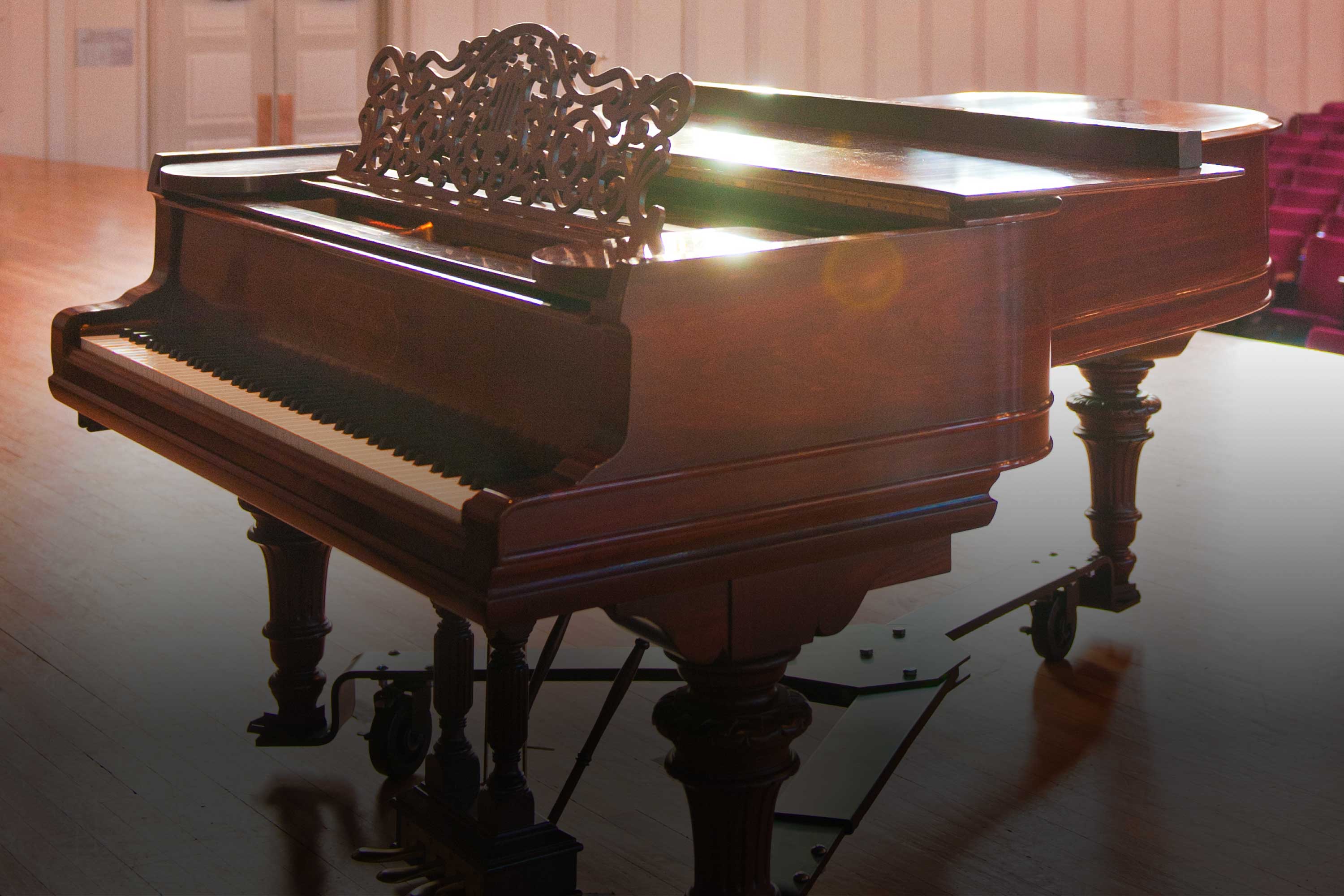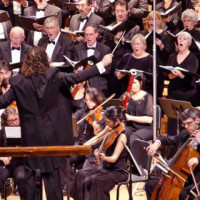Rescheduled at last.
The program, featuring the Fairfield-based group only, was initially planned for March 13, 2010, said John Parkinson, executive director of the FCC.
The dress rehearsal “on that Saturday afternoon went on as the storm raged outside,” Parkinson said.
“The heavens opened—it poured … the building was shaking ” because of the high winds, he recalled.
But the chorale was not to be deterred as the concert was its exciting season finale, he explained, laughing.
Until … “Then the lights in the concert hall went out and the performance HAD to be canceled.” As it turned out, that storm, on March 13–14, 2010, caused enormous damage throughout Fairfield County. Winds reportedly reached about 65 mph in some spots, and flooding and power outages were widespread.
With the participation of the Westchester ensemble, Saturday’s production will be even better than what the group had originally planned. At a combined 160 members, the sound will be huge, Parkinson said.
Conducting will be the Fairfield County Chorale’s music director, David Rosenmeyer. The chorales will be accompanied by 45 musicians from the Fairfield County Chorale Orchestra. Four soloists also will be featured: tenor Alok Kumar, bass Pnini Grubner, soprano Enivia Mendoza and mezzo soprano Eve Gigliotti.
Although “these glorious works consistently rate as audience favorites throughout the world’s major cities, they are not performed in southern Connecticut often,” Parkinson said.
The pieces tend to pose musical, orchestral and financial challenges that can put them out of reach for many choral groups, he explained.
However, by pooling resources with the Westchester Choral Society, the concert is economically feasible, with the organizers hoping that fans of both groups will fill the 1,000-seat Norwalk Concert Hall, he said.
In a written statement, Parkinson described the “Gloria” as “frothy … tuneful throughout, with mysticism, exciting rhythms and ecstatic chords. The Stabat Mater is Rossini—who also composed the William Tell opera—at his melodious best, from the exquisite a cappella movement to the glorious final fugue that exemplifies Rossini’s supremacy at beautiful melodies.”
Poulenc’s piece, a relatively modern work, was commissioned by the Koussevitzky Foundation and premiered by the Boston Symphony Orchestra in 1961. It is now considered a masterpiece of modern choral literature, Parkinson explained.
While writing the Stabat Mater in Paris, Rossini apparently complained to friends: “I am searching continually for melodic motives, and all that comes into my mind is pastries, truffles and such things.” It was finished in 1841.
The concert also will feature Faure’s Pavane. Originally a piano piece, it is better known in Faure’s version for orchestra and chorus, “conjuring a cool, somewhat haunting elegance,” he said.






